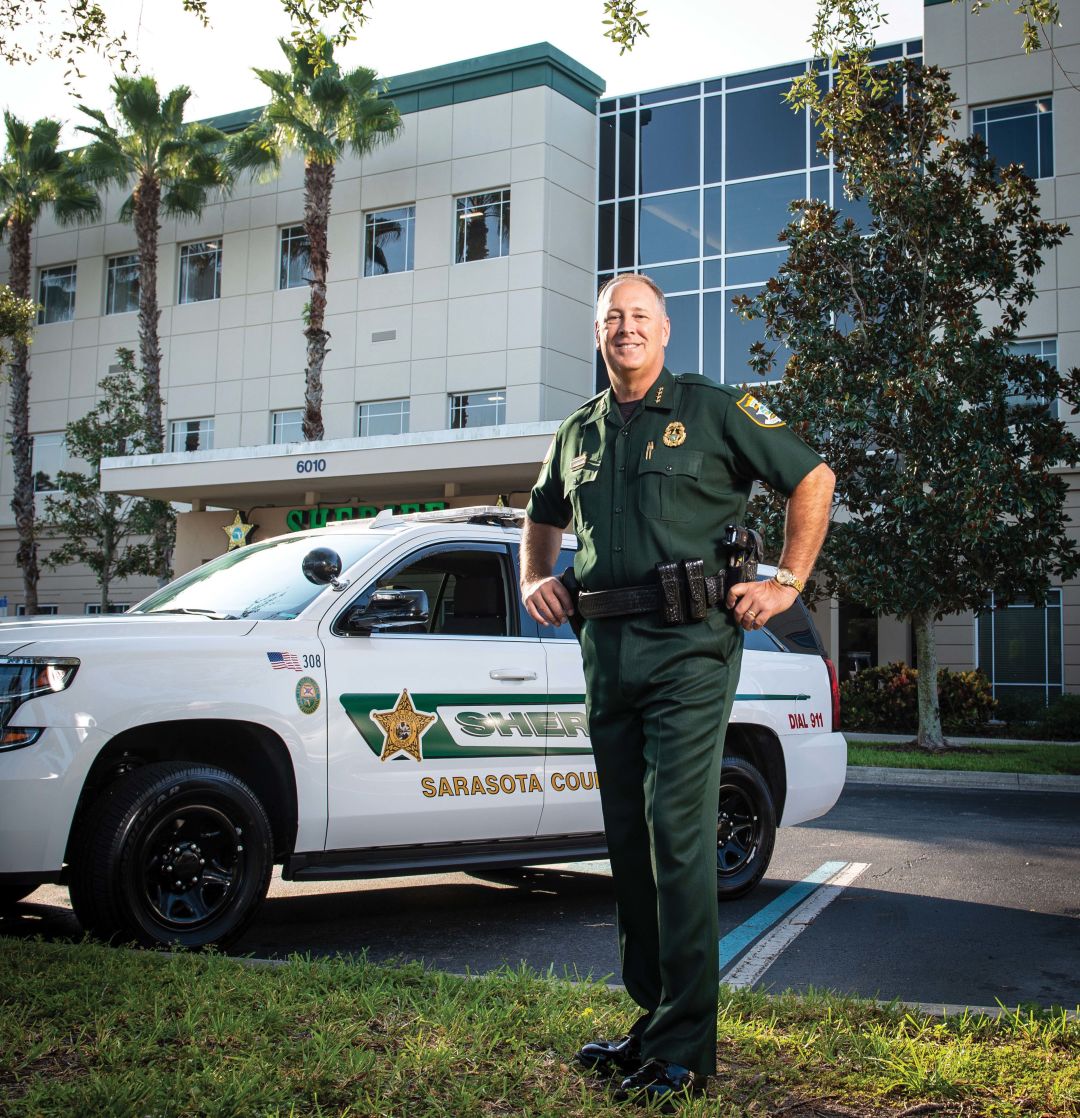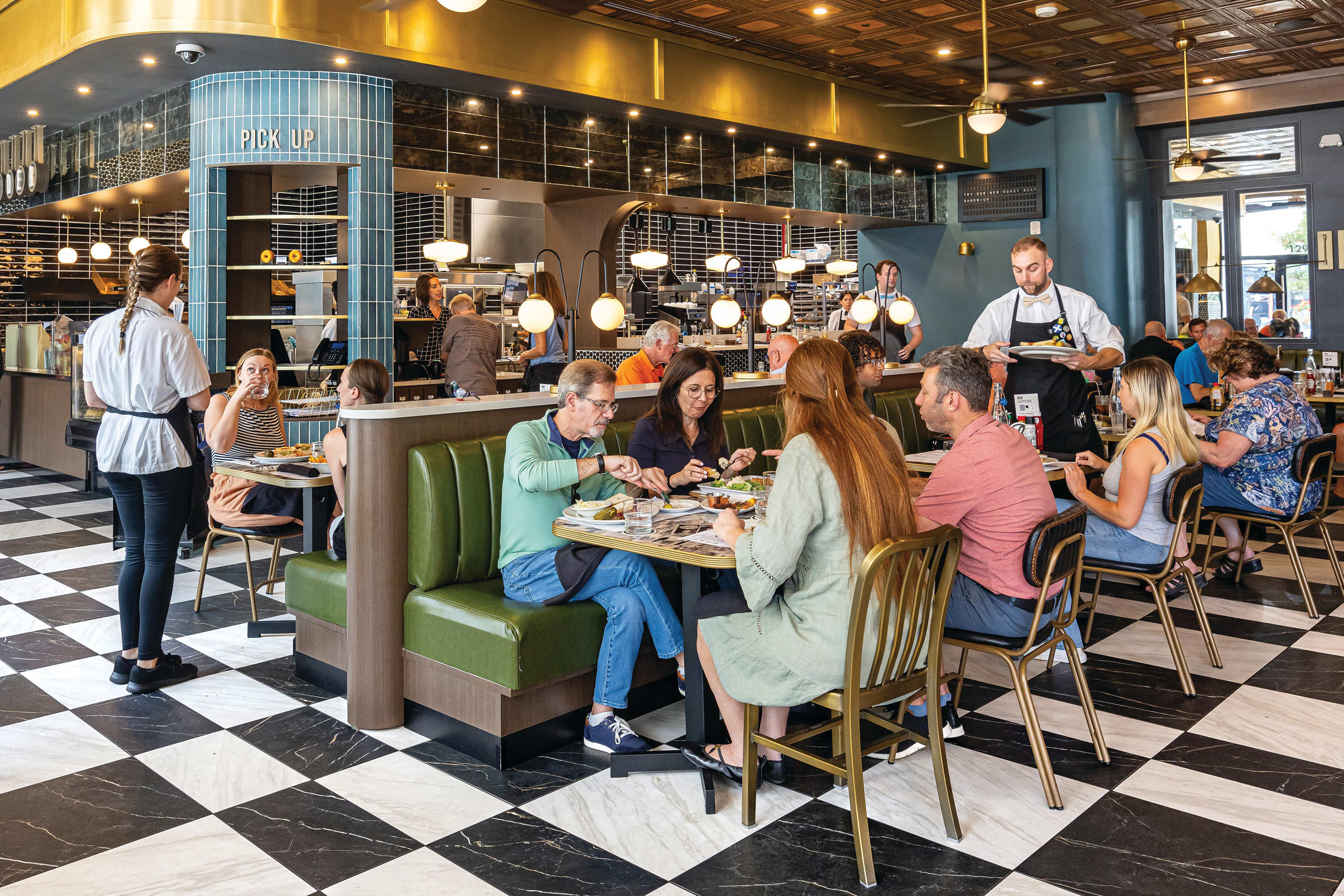Sarasota Sheriff Tom Knight Looks Back on His 33 Years in Law Enforcement

Sheriff Tom Knight
Image: Barbara Banks
After a 33-year career in law enforcement and 12 years as Sarasota County’s top cop, Sheriff Tom Knight, 54, is stepping down, but he’s not retiring. He was recently named the next chief executive officer of First Step, a Sarasota nonprofit that helps people with mental health and addiction disorders.
That new role, which he will take on after officially departing as sheriff in January, is an outgrowth of his career in law enforcement, when he launched programs to help incarcerated people beat the addictions that keep landing them back in jail. Knight spoke with Sarasota Magazine about how police work has changed in the last three decades, how the opioid epidemic changed his thinking about drugs and crime, and why people protesting police violence doesn’t bother him.
“When I started in 1987, it was much more physical, but it was easier. It was black and white. Crack cocaine ravaged our inner cities, even the smaller ones. I worked as part of a two-man unit, and we’d arrest four or five people a day. You didn’t have to think as much.
“In the ’70s and ’80s, we were an occupying force in communities. It became an us-versus-them mentality. [The change began] after the Rodney King situation in Los Angeles in 1991. You started to see a transition in law enforcement of more accountability, more training, more de-escalation, more responsibility, better leadership.
“When I took over as sheriff in 2008, we had over 40 pill mills. So many people being arrested were addicts, and it was filling up our jail. The way I looked at it back then was, ‘We’re not going to arrest our way out of this. We can’t charge the doctors who are writing the prescriptions. We need to find a better way to do this than put handcuffs on people.’
“In June of 2009, we started addiction recovery programs in the jail. The programs we have in there have saved this community from having to build a new $100 million jail. I’m proud of the fact that I work with a county administrator who has bought into this concept. We don’t need to build [another] 300 jail cells.
“I have a huge heart for people who don’t have good parents to help them. I never believed anybody got addicted on purpose. I never believed that somebody said, ‘I’m going to shoot this opioid in my arm and mess up the rest of my life.’
“I’ve had a couple critical situations that I agonized over how to handle. When you have something like the Rodney Mitchell shooting [Mitchell was shot in Newtown by two sheriff’s deputies during a 2012 traffic stop], there’s no best way to handle it. There’s no playbook, nothing I learned in leadership training. The deputy didn’t do anything wrong and it met the legal threshold. But what could we have done to make sure that we weren’t in a position for something like that to happen again?
“At the time we were running Operation Armistice. We had a lot of gang activity coming from the Manatee County area, and they would travel down the U.S. 301 corridor. We had an influx of extra deputies [in Newtown] just for our presence. We had so much gun violence going on that the people who lived in that community didn’t feel safe.
“As much time as I’ve spent in the Newtown community, the only issue that hinders everything up there for me is that shooting. It was a shooting that probably didn’t need to happen. If the young man had just done what he was told to do, it wouldn’t have happened. If the deputy didn’t walk up to the car, it may not have happened. There are so many intangibles there.
[About the phrase “defund the police”]: “We should be more on patrol, out in the community, around children, embedded in the community. ... That’s what protesters are asking for. They want better government. They want better policing. Law enforcement was getting over-utilized for things other than law enforcement. We get used for mental health, homelessness, animal services. I think you’ll see local governmental bodies start to find health and human services and social services sectors to handle those, rather than putting them on the backs of the police. I think we’re going to drift back to more of a guardian mentality than a policing mentality. I think it’s kind of neat.
“[After this] my hope is to build on substance abuse and mental health issues that I have learned so much about as sheriff and to work in this community to help with those important causes. [I’d like] to keep individuals from being involved with the criminal justice system.
“What I hope is that three, four years down the road, I might bump into somebody at Gecko’s while I’m drinking a beer and eating a cheeseburger, and they come up and say, ‘Hey, man, thanks for what you did. You were a good sheriff.’”



